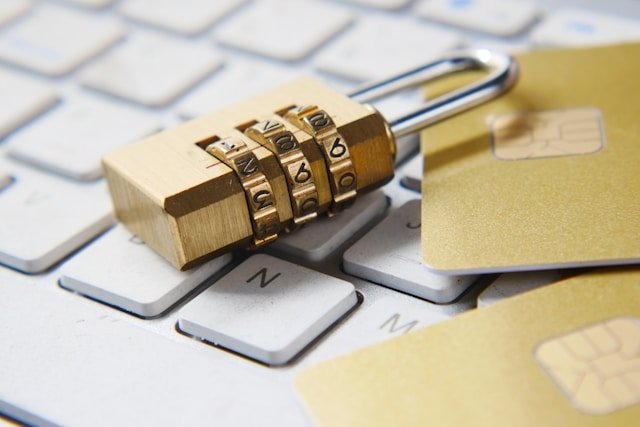How to Land a Job in Privacy & Data Protection Law: A Step-by-Step Guide
Introduction
The demand for privacy and data protection lawyers is at an all-time high. With the increasing complexity of GDPR enforcement, cross-border data transfers, AI governance, and cybersecurity regulations, legal professionals specializing in these fields are in high demand. Many international lawyers are looking to transition into privacy law, but breaking into this specialized legal sector requires expertise, networking, and strategic career planning.
This guide focuses on legal professionals - especially those with an LL.M. or PhD in law - who want to pursue careers in privacy law, cybersecurity law, and data protection compliance.
1. Understanding Key Roles in Privacy & Data Protection Law
For lawyers, privacy and data protection careers can take many forms. Common legal roles include:
- Data Protection Officer (DPO) – Often a legal role in organizations ensuring GDPR compliance.
- Privacy Counsel/In-House Legal Advisor – Advising companies on cross-border data transfers, compliance, and regulatory risk.
- Regulatory & Compliance Lawyer – Ensuring businesses align with data protection laws and sector-specific requirements.
- Cybersecurity & AI Governance Lawyer – Addressing legal issues related to cyber incidents, AI, and ethical data use.
- Law Firm Associate (Privacy & Data Protection Practice) – Advising clients on privacy litigation, GDPR enforcement, and EU regulations.
Many professionals in these roles have a background in EU law, IT law, human rights law, or corporate compliance.
2. Developing the Right Expertise
Legal Knowledge & Specializations
To stand out, privacy lawyers need deep expertise in:
✅ GDPR and EU Data Protection Law (including enforcement trends)
✅ E-Privacy Directive and upcoming AI Act regulations
✅ International Data Transfers (Schrems II, adequacy decisions, SCCs, and DPF)
✅ Cybersecurity regulations (NIS2 Directive, incident response, risk management)
✅ Sector-Specific Regulations (financial services, healthcare, AI ethics, advertising tech, etc.)
Certifications & Professional Development
While many privacy lawyers come from an academic legal background, additional certifications can help establish expertise in data protection law. Recognized certifications include:
- CIPP/E (Certified Information Privacy Professional – Europe) – Covers EU privacy laws and frameworks.
- CIPM (Certified Information Privacy Manager) – Focuses on privacy program governance.
- CIPT (Certified Information Privacy Technologist) – Useful for lawyers working in tech-heavy privacy roles.
- ISO 27001 Lead Implementer or Auditor – A valuable asset for cybersecurity law.
- GDPR Practitioner Certification – Offers practical knowledge for compliance-focused roles.
For more details, you can also visit IAPP’s certification page.
Conferences & Networking
Networking is crucial for legal professionals in this field. Attending high-level privacy law conferences can help lawyers build connections and stay informed about industry developments. Key events include:
- IAPP Europe Data Protection Congress
- Computers, Privacy & Data Protection (CPDP) Conference
- EU regulatory briefings and legal tech events
Brussels Legal also maintains a list of top legal conferences - find it here.
3. Building a Legal CV & Gaining Practical Experience
Unlike more general DPO roles, privacy law careers require strong legal expertise. Key steps to enhance your CV:
📌 LL.M. in IT, Data Protection, or EU Law (strongly valued)
📌 Privacy & cybersecurity law-focused PhD or research experience
📌 Secondments or internships in law firms, EU institutions, or regulatory bodies
📌 Experience with regulatory proceedings, enforcement actions, and litigation
For insights on breaking into the field, read our Brussels Legal interview with Olivier Proust.
4. Where to Find Legal Job Opportunities
Most privacy and cybersecurity law jobs are in:
- International law firms – Privacy & data protection practices.
- EU institutions and regulatory bodies – EDPB, European Commission, National DPAs.
- Tech companies & multinational corporations – In-house privacy legal teams.
- Consulting & advisory firms – Compliance and risk management legal roles.
Top job platforms for legal roles include:
- EuroBrussels Privacy & Data Protection Jobs
- Brussels Legal – Career insights, legal job listings, and industry events.
- Law firm career pages & LinkedIn legal networks
Set up job alerts, subsribe to legal newsletters and use your alumni networks to access exclusive legal job postings.
5. Acing the Interview for a Privacy Legal Role
Hiring managers look for:
✅ Deep understanding of GDPR & privacy law enforcement
✅ Regulatory risk assessment & compliance expertise
✅ Experience advising on cross-border data transfers & regulatory filings
✅ Strong legal drafting & negotiation skills (contracts, DPA agreements, SCCs)
✅ Ability to interpret regulatory guidance & policy trends
Mock interview tip: Prepare case studies on real-world privacy legal cases (e.g., Schrems II, Meta fines, AI governance challenges).
6. Stay Updated & Keep Learning
Privacy law is constantly evolving. Stay ahead by:
📌 Following IAPP, EDPB, and legal thought leaders on LinkedIn.
📌 Subscribing to law firm privacy blogs & Brussels Legal articles.
📌 Joining IAPP, CPDP, and cybersecurity legal discussions.
Conclusion
Breaking into privacy and data protection law requires specialized legal knowledge, networking, and strategic career development. Whether you’re an experienced lawyer looking to pivot or a recent LL.M. graduate, this field offers excellent career growth.
📢 Looking for your next opportunity? Explore the latest privacy & data protection legal jobs on EuroBrussels, and check out Brussels Legal for interviews, events, and legal career resources. 🚀












